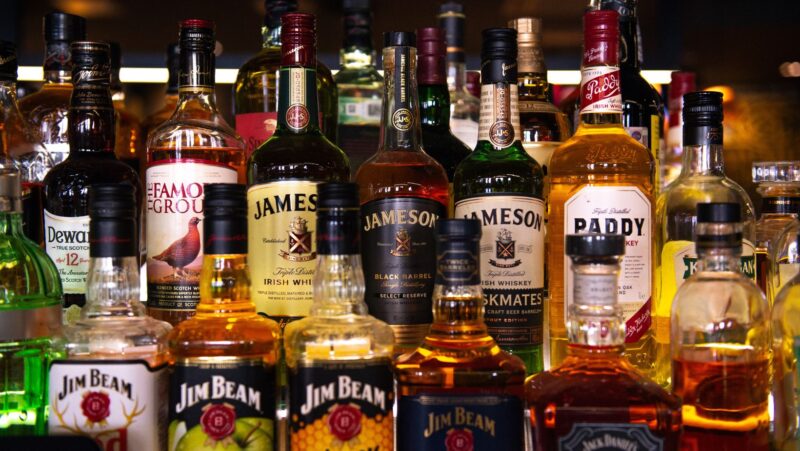
Alcohol can feel like a quick fix for high-pressure jobs. You know the drill—long days, endless deadlines, and the constant demand to perform. Add a stiff drink, and suddenly the world feels manageable again. But when the habit stops being a way to wind down and starts becoming a crutch, it’s time to rethink the relationship. Stress and booze have always been tangled up, but the good news? Untangling them is entirely possible. Let’s talk about what’s happening behind the scenes and how to make lasting changes without feeling like you’re giving up everything.
Why High-Stress Careers Lean on Alcohol
Stressful jobs often come with a play-hard culture. Late nights schmoozing with clients, happy hours to “decompress,” and industry events where the drinks flow freely. Add the pressure to deliver on tight timelines or juggle heavy workloads, and alcohol becomes an easy go-to. It’s socially acceptable, always available, and it works—at least temporarily.
The bigger issue lies in the mental exhaustion that comes from high-stress roles. Your brain craves relief, and alcohol offers a shortcut. But while it may quiet the noise for a moment, it also interferes with your ability to recover, sleep, and think clearly. Over time, that quick fix starts to create cracks in your foundation.
Here’s the truth: high-pressure work environments won’t change anytime soon. The key is figuring out how to manage stress in a way that works for you, not against you.
The Slippery Slope
No one plans to end up in a pattern where drinking becomes the default. It usually starts small—maybe a glass of wine after a brutal meeting or a beer during the post-work wind-down. But then the habit grows. That single drink turns into three, then into a nightly ritual.

The issue isn’t the alcohol itself; it’s the role it plays. It becomes the go-to answer for stress, leaving little room to explore healthier coping mechanisms. And if work culture normalizes heavy drinking, it’s even harder to recognize when things are sliding out of control.
Pay attention to the patterns. Are you drinking because you want to or because you need to? That distinction matters. Recognizing it early can be the difference between a habit you can shift and one that takes over your life.
Investing in Yourself
Let’s get practical. Breaking the cycle of stress and alcohol isn’t just about willpower. It’s about building an infrastructure that supports your health. One way to do that is by creating a wellness budget—not just financially, but with your time and energy.
Think about what genuinely helps you recharge. Maybe it’s a personal trainer, a meditation app, or a weekly therapy session. Maybe it’s as simple as carving out time to take a walk or cook dinner without distractions. The point is to consciously allocate resources—money, time, and mental bandwidth—toward things that leave you feeling more grounded and less inclined to reach for that drink.
This isn’t about deprivation; it’s about recalibrating. You’re not giving up something you enjoy. You’re making space for habits that serve you better.
Corporate Support
Here’s the thing: big companies are starting to recognize the link between high-pressure jobs and substance dependency. And they’re stepping up with support systems you might not even know about. Think like Boeing, PepsiCo or Lockheed Martin rehab benefits that work with recovery centers. These programs are designed to help employees regain balance without derailing their careers.
This isn’t your typical HR spiel. Many of these benefits are tailored for professionals, offering discretion and flexibility. That could mean outpatient programs, virtual support groups, or executive-level recovery services that fit into demanding schedules.
But here’s the catch: you have to ask. These programs aren’t always front and center, so dig into your benefits package or have a confidential chat with HR. Accessing support isn’t a sign of weakness—it’s a smart move for anyone serious about building a sustainable career and life.
Redefining Connection Without Alcohol
One of the hardest parts about cutting back on drinking is figuring out how to navigate social situations. If your work life revolves around boozy dinners, cocktail hours, or late-night brainstorming sessions over drinks, it can feel isolating to say no.

But here’s the truth: people are more understanding than you think. The key is confidence. Own your decision without overexplaining. A simple, “I’m good with water tonight,” can be surprisingly powerful.
You might even inspire others to rethink their own habits. After all, high-functioning professionals are increasingly embracing a lifestyle that prioritizes health over hangovers. The more people see it’s possible to succeed without leaning on alcohol, the more the culture shifts.
Finding Fulfillment Beyond the Job
If your entire identity is wrapped up in your career, it’s easier to fall into unhealthy patterns. Alcohol often becomes a coping mechanism when work feels like the only thing that defines you.
Shifting this mindset can be transformative. What hobbies have you let slide? What relationships could you invest more energy in? The goal isn’t to de-prioritize your career but to create a richer, more balanced life outside of it.
When you find meaning and fulfillment in areas beyond your job title, you’re less likely to rely on alcohol to fill the gaps. Instead, you build a foundation that supports you—even on the hardest days.
Building a Better Future
Breaking the cycle of stress and alcohol is hard work, but it’s also some of the most rewarding work you’ll ever do. It’s not about cutting yourself off from everything you enjoy; it’s about building a life that feels good on its own.
Lean on the tools and resources available, whether it’s wellness initiatives, corporate benefits, or simply reaching out to someone who understands. You don’t have to go it alone. High-pressure jobs may always demand a lot, but you have the power to decide how you meet those demands—and how you care for yourself along the way.






